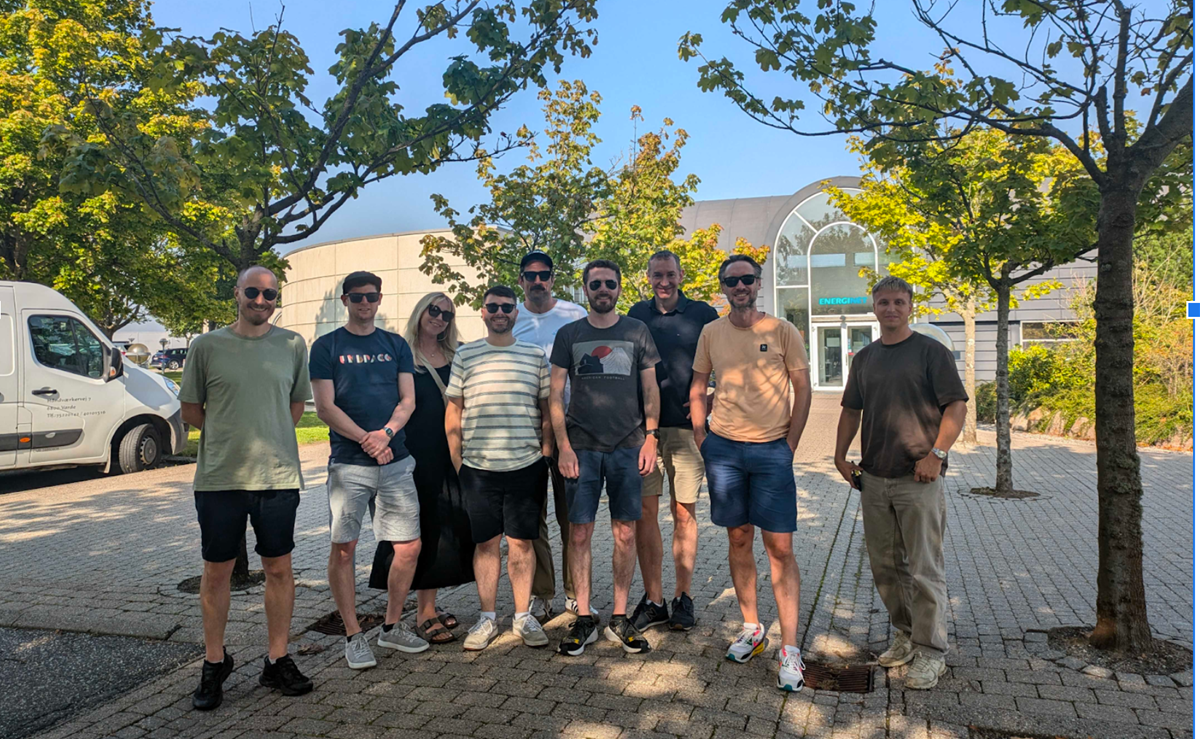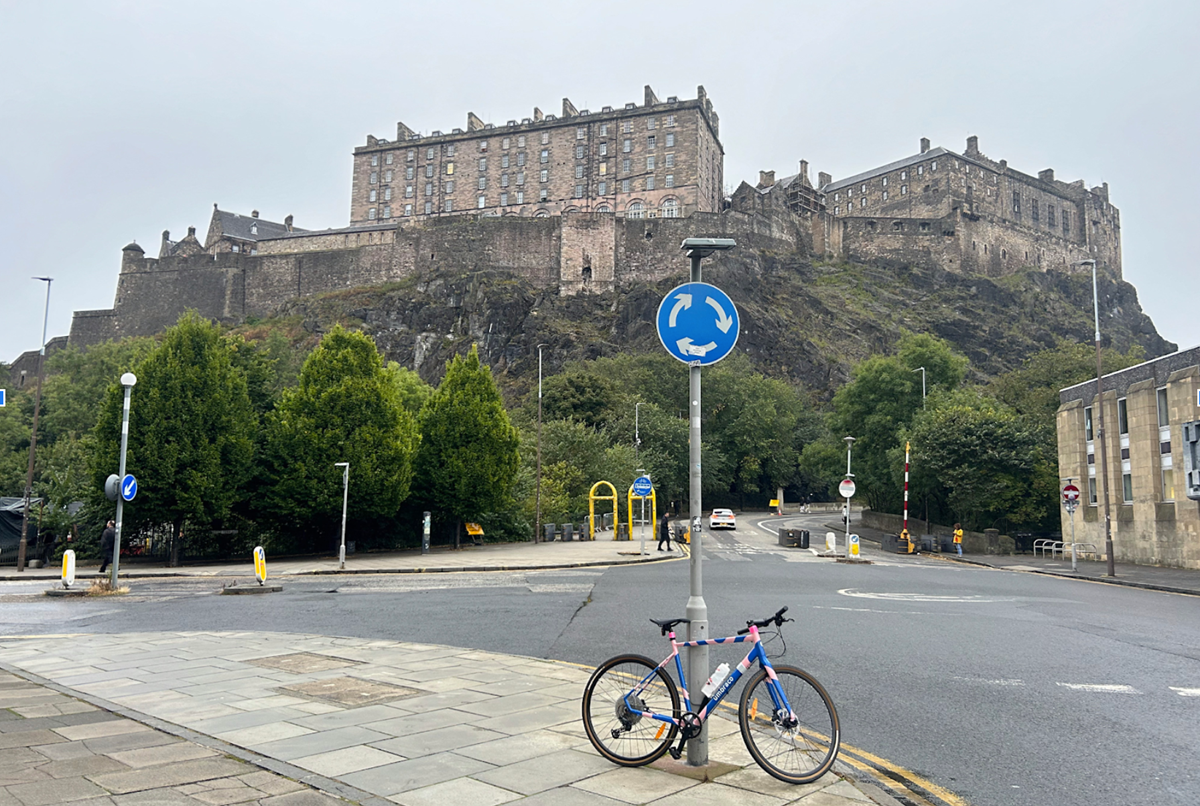Umbraco Community Days 2024: Catching up with the Sustainability Team
5 minute read
After gathering with the Umbraco Community Teams in Odense, Denmark, Amy Czuba reflects on a year's progress with the Sustainability Team, and their plans for the future.
Last week, I had the privilege of spending time with the Umbraco Community Teams at Umbraco HQ in Odense, Denmark. It was an excellent opportunity to reflect on the past year’s achievements and look ahead to some exciting plans for the future. We were also introduced to Umbraco’s new CEO, Mats Persson, who shared his vision for the platform, including an increasing emphasis on sustainability.
As a member of the Sustainability Community Team, which recently celebrated its one-year anniversary, this gathering offered a chance to review our progress over the past 12 months. Among our key highlights were hosting a highly-attended webinar on digital sustainability — one of the most popular sessions in Umbraco's history — and launching our sustainability competition.
The theme for this year's community days was ‘Back to Basics’, and as a team with lots of passion, and a desire to deliver impact, we hit the ground running. We wanted to review our mission, vision and values statement so we can be more vocal about what we’re doing, be clear about the future priorities and the drivers guiding the roadmap for the team.
Our team's core purpose is to foster the conscious, sustainable development and use of Umbraco — for developers, editors, and users alike. We’re dedicated to collaborating with the community to learn from one another and understand diverse perspectives and experiences to proactively deliver low-carbon digital solutions which contribute to a greener world.
At the heart of our work is the question “How can we reduce emissions?”. However, we recognise that sustainability encompasses more than just environmental concerns. In the coming year, we plan to collaborate with Umbraco's DEI and Accessibility guilds, broadening our focus to drive a more holistic and impactful approach to sustainability.
Our objectives for the future
Mission
Our mission is to reduce the carbon impact of Umbraco, taking bold action to create awareness and promote conscious, sustainable use and development.
Vision
We want to lead the way towards an industry-wide increase in sustainable CMS Platforms
Values
We’re guided by Umbraco’s values of Open, Friendly, Hungry, Trust and Respect, but we wanted to define some additional values that we as a team will abide by:
- Transparent
- Collaborative
- Progressive
- Responsible
So, what’s next?
We developed a roadmap to build on the successes we've achieved so far and plan for the year ahead. A major focus is enhancing our Umbraco Sustainability package, which has already seen over 1,000 downloads in just six months.
Looking forward, we plan to provide more content guidance for editors, particularly around media uploads and scheduled tasks. Additionally, we’re working to integrate the Green Software Foundation’s Carbon Aware Software Development Kit, which will enable websites to make smarter, energy-efficient decisions based on real-time energy grid data. To simplify this, we’ll introduce visualisations that make these insights easy to understand at a glance.
Working with HQ
We also participated in discussions with Umbraco HQ to explore how we can support broader sustainability initiatives. Our goal is twofold: first, to highlight the steps Umbraco is taking internally to lead by example, and second, to empower the wider community to develop more sustainable digital products.
This includes contributing to the Sustainability section of the Umbraco website and collaborating with agencies to adopt best sustainability practices. Additionally, we’re investigating ways to make live sustainability data on Umbraco Cloud more transparent, helping users better understand the platform’s ongoing efforts to reduce its environmental impact.
A visit to EnergiNet
Finally we enjoyed a field trip to Energinet, which is owned by Danish Ministry of Climate Energy and Utilities. Energinet operates the ‘DataHub’, which manages electricity data from every end-user.
The DataHub serves as an intermediary between energy producers and consumers, allowing seamless data exchange within the network. Distribution grid operators gather data from smart meters and send it to the DataHub, ensuring that energy consumption data reaches suppliers. This system underpins Denmark’s free-market energy model, where service providers don’t own the physical infrastructure like cables. Energinet also places a strong emphasis on data security and privacy, given the sensitive, identifiable nature of the information collected.
Energinet is also in the process of transitioning parts of its infrastructure into open-source solutions, paving the way for future innovation. Their focus on grid resilience and energy security has produced excellent results, with Denmark experiencing minimal power outages over the past year. Looking ahead, Energinet is working to expand the grid, especially for renewable energy sources like solar power, ensuring a future-proof system similar to the UK's National Grid.
With the increasing adoption of electric vehicles (EVs), Energinet is actively working to ensure vehicle-to-grid systems are bidirectional, making it easier to both draw and supply energy. They're also promoting Europe-wide compatibility standards for EV charging infrastructure and encouraging private owners to make their charging points publicly accessible, similar to an Airbnb-style model for EV charging stations.
This broader vision reflects Energinet’s commitment to creating convenience and accessibility in energy data and infrastructure, supporting a sustainable and connected future. It was certainly inspiring to see the innovation taking place with the goal to drive us towards more sustainable times ahead.

The team has had a highly productive few days, working together on key plans and initiatives while building stronger communication and collaboration with HQ (special thanks to Mats, Bjarke, Martin, and Kec) and other teams, including the back-end and DEI teams. It's incredibly rewarding to reflect on our collective achievements this year: from launching our sustainability package and hosting impactful events, to producing detailed documentation, and running the most attended Umbraco webinar to date. A special highlight has been our sustainability competition, which culminated in the creation of the Umbraco bike—now proudly housed in Edinburgh. Congratulations again to Liam for the well-deserved win (and for the memorable picture!).


